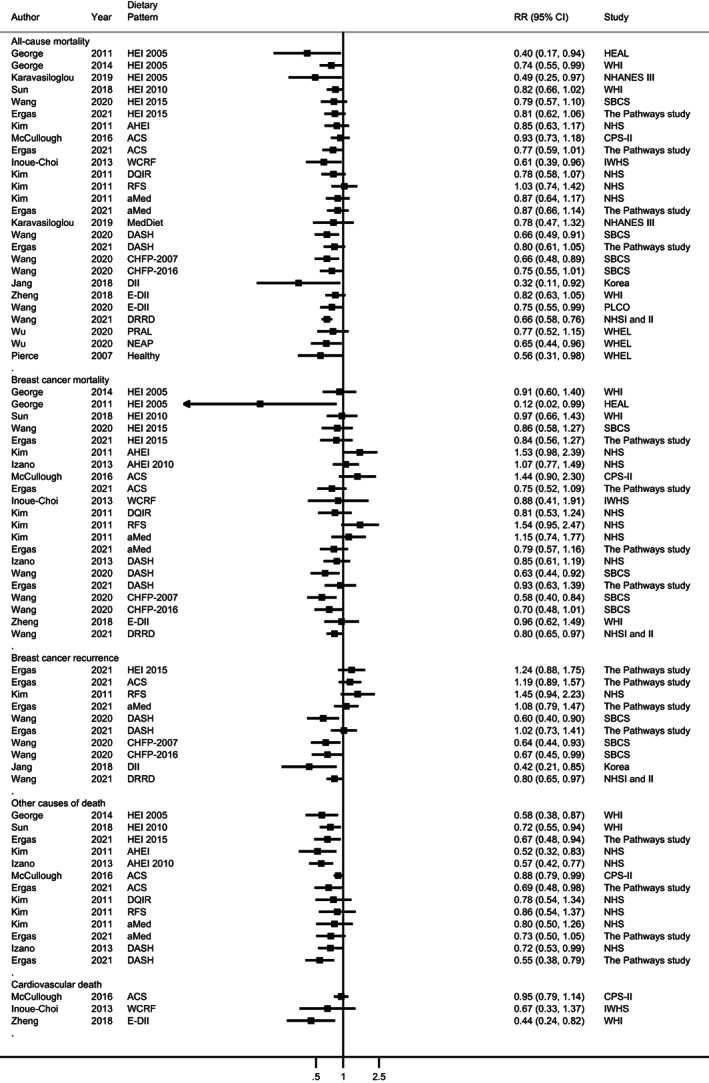FIGURE 2.

Forest plot of prognostic outcomes for the highest compared to the lowest level of predefined dietary or lifestyle patterns after breast cancer diagnosis. Different patterns are represented in the same forest plot to facilitate the visualisation of the data. Also, the same study may be represented more than once if different dietary patterns were investigated. Each square represents the relative risk (RR) estimate for the highest compared to the lowest level of the predefined dietary or lifestyle pattern and the horizontal line across each square represents the 95% confidence interval (CI) of the RR estimate. The figure should not be interpreted as a quantitative summary. The Pathways study which reported the point estimate per each 10‐point increase of plant‐based dietary index (total, healthy and unhealthy; Anyene 2021) 49 was not included in the figure. Results from Wang 2020 44 and Wu 2020 48 for breast cancer‐specific mortality, and from Wu 2020 56 for recurrence were not included because competing risk regression models were employed. Inoue‐Choi 2013 41 investigated a score of diet plus lifestyle factors; Pierce 2007 42 investigated the combination of fruit and vegetable intake and physical activity. For comparative purposes, data from Jang 2018 39 and Wang 2020 44 (proinflammatory diet), and Wu 2020 48 (dietary acid load) were recalculated to have higher scores as the reference category. ACS, American Cancer Society; AHEI, Alternate Healthy Eating Index; aMed, alternate Mediterranean Diet Score; CHFP, Chinese Food Pagoda; CPS‐II, Cancer Prevention Study II Nutrition Cohort; DASH, Dietary Approaches to Stop Hypertension; DII, Dietary Inflammatory Index; DRRD, Diabetes risk reduction diet; HEAL, Health, Eating, Activity, and Lifestyle Study; E‐DII, energy‐adjusted Dietary Inflammatory Index; HEI, Healthy Eating Index; IWHS, Iowa Women's Health Study; NEAP, Net endogenous acid production; NHANES; National Health and Nutrition Examination Survey; NHS, Nurses' Health Study; MedDiet; Mediterranean Diet; PLCO, Prostate, Lung, Colorectal and Ovarian cancer screening trial; PRAL, Potential renal acid load; RFS, Recommended Food Score; SBCS, Shanghai Breast Cancer Study; WCRF, World Cancer Research Fund; WHEL, Women's Healthy Eating and Living Study; WHI, Women's Health Initiative
